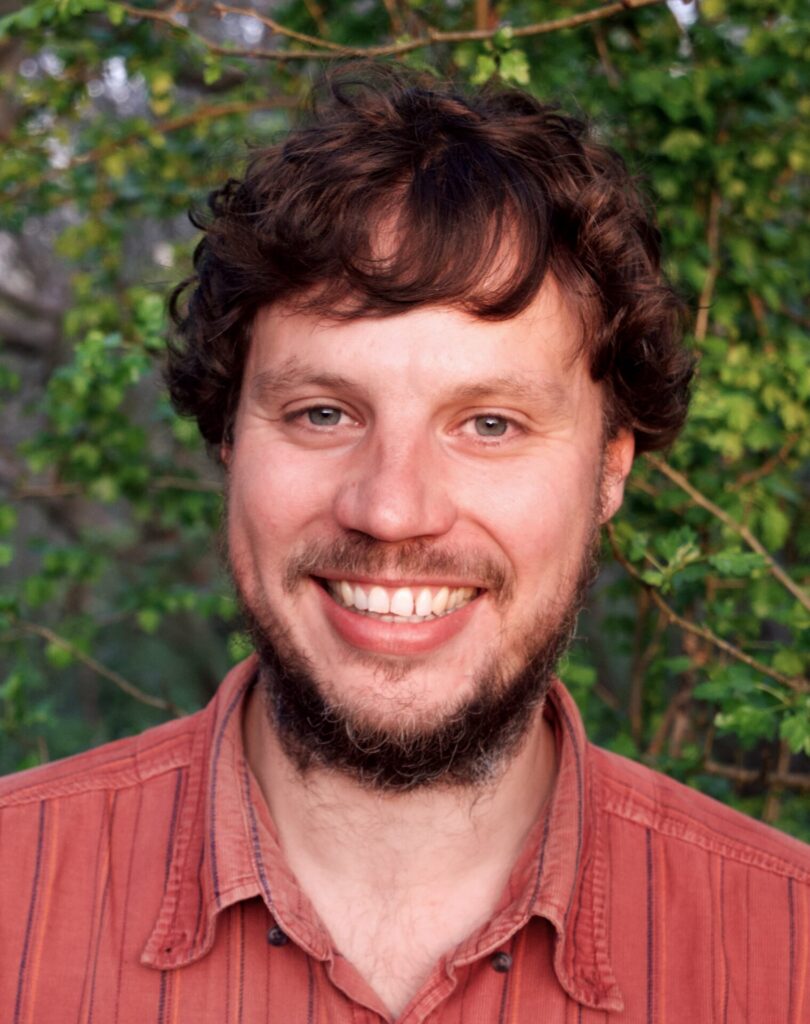Matt Nicholas

Matt began his career as a recording engineer at Abbey Road Studios before retraining as an integrative counsellor. Now based in Bristol, he combines his therapeutic work with ongoing freelance projects in recording and mixing music.
As a counsellor, Matt takes a down-to-earth and flexible approach, drawing on different modalities to find what best supports each individual. He works collaboratively with clients to help them reconnect with their authentic selves and inner strengths, offering a safe and supportive space to explore challenges and move through difficult experiences.
Please could you tell us a little bit about yourself and how you came to become a therapist?
I went through a severe anxious breakdown in my early twenties, when the tension between the mask I showed the world and my authentic, wounded self, weighed down with a great deal of shame, snapped spectacularly. Therapy helped me piece myself back together and, little by little, feel safer showing the real me.
All of this happened while I was working in the music industry, where it felt like I had to be a certain way (cool, confident, in control) in order to be taken seriously. My healing journey through talking therapy was invaluably life-changing, ever-revealing, and often jaw-droppingly surprising. I became excited at the prospect at accompanying others on their own healing and self-discovery journey and decided to take the sideways step into counselling.
Why do you think it is important for men particularly to engage with this kind of therapeutic work?
I can see how the masculine culture of bottling up emotions has its roots in countless years of warfare, hardship and gruelling working conditions. If you are about to go into battle, the last thing you would want is for a fellow soldier to begin expressing their vulnerability. In that context, shutting feelings down may have been necessary for survival.
But outside of battle, these same “macho” ideas are often damaging, maladaptive and ultimately immature in most of today’s contexts. Still, the effects of this conditioning run deep, making it harder for many men to share the weight of their inner suffering. Shame, silence and secrecy can be a dangerous and painful combination, not only for the individual man but also for the lives he touches.
Are there any myths/misconceptions about therapy that you think might deter men from seeking help?
One common misconception is that there’s a “right” way to do therapy, and therefore you’ll be expected to do things you don’t want to do. In reality, therapy isn’t about being forced into anything. The approach I, and most other therapists, take is based on collaboration and co-creation. You have your hands on the steering wheel, and together we can move in whatever direction and at whatever pace feels right for you.
Do you have any special areas of expertise, what sort of issues can you help participants to engage with?
The challenges we face in our creative journeys as artists and musicians are often closely linked with our mental health and the ways past experiences shape our thoughts and behaviours. From my first-hand experience working alongside artists in the studio, I understand the unique pressures that come with making music. As a counsellor, I bring this understanding together with therapeutic tools to explore the roots of these struggles, opening up space for awareness and healing. This not only supports personal wellbeing but also helps keep the creative process alive and flowing.
Why is being part of Seed Sessions important to you?
Seed Sessions not only supports individuals but also brings the vital conversation about self-care and male mental health to the forefront, helping to shift a music industry culture that too often neglects the wellbeing of its artists. I believe this to be essential work.
